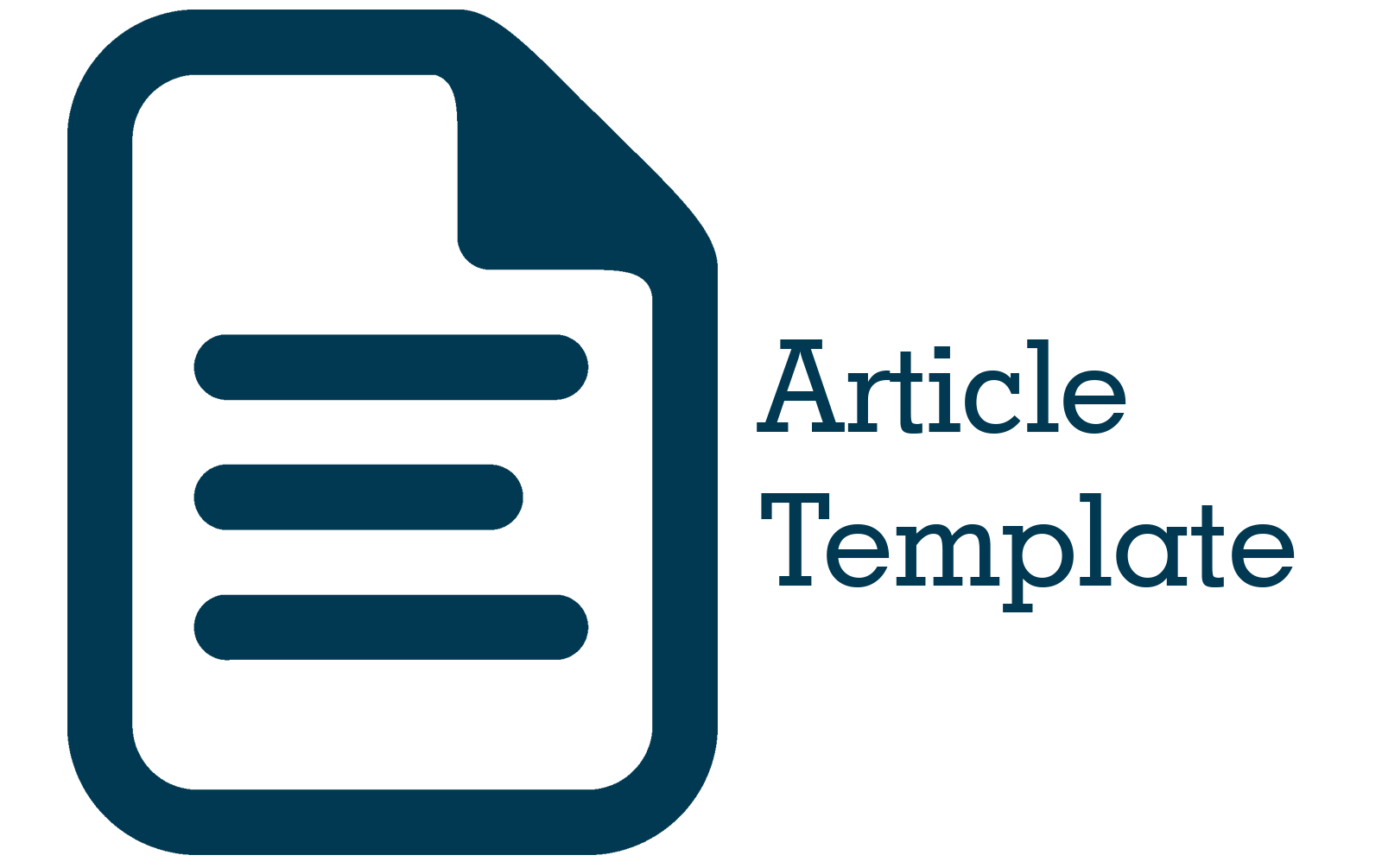Adopsi Ekonomi Sirkular Menuju ‘Zero Poverty’ di Desa Margamukti Kabupaten Sumedang
Abstract
Abstract. English translation. The circular economy has become a business model trend in responding to environmental problems and towards sustainable business. Community service activities are carried out in Margamukti Village, Sumedang Regency by carrying out the concept of circular economy. The typology of Margamukti Village area located on the outskirts of the capital city of Sumedang, is rice fields where the function of space is dominated for agricultural land. The Margamukti Village Government has tried to adopt the circular economy concept contained in the Margamukti Village Circular Economy Innovation Profile document. This article will discuss how the adoption of a circular economy that can optimize the potential of the leading economy while creating employment opportunities and reducing poverty, which will be outlined in a more structured plan document and put forward a buttom-up approach. There are four methods in this activity, namely, content analysis, deductive method, focus group discussion, and mentoring process. Some analysis of the results of activities includes proposals to identify the entrepreneurial potential of farmer groups. In the profile document, there is also no monitoring of evaluation, no duration of time and no achievement indicators. This means that profile documents need to be refined by accommodating all findings from the results of this service into a roadmap.
Abstrak. Ekonomi sirkular telah menjadi trend model bisnis dalam merespon masalah lingkungan hidup dan menuju bisnis berkelanjutan. Kegiatan pengabdian dilaksanakan di Desa Margamukti Kabupaten Sumedang dengan mengusung konsep ekonomi sirkular. Tipologi wilayah Desa Margamukti yang terletak di pinggiran Ibu Kota Sumedang adalah persawahan dimana fungsi ruang didominasi untuk lahan pertanian. Pemerintah Desa Margamukti sudah mencoba mengadopsi konsep ekonomi sirkular yang tertuang dalam dokumen Profil Inovasi Sirkular Ekonomi Desa Margamukti. Artikel ini akan membahas bagaimana adopsi ekonomi sirkular yang dapat mengoptimalkan potensi ekonomi unggulan sekaligus menciptakan kesempatan kerja dan menurunkan kemiskinan, yang akan dituangkan dalam dokumen rencana yang lebih terstruktur dan mengedepankan pendekatan buttom-up. Terdapat empat metode dalam kegiatan ini yakni, content analysis, metode deduktif, diskusi kelompok terfokus, dan proses pendampingan. Beberapa analisis hasil kegiatan antara lain berupa usulan untuk identifikasi potensi kewirausahaan kelompok peternak. Dalam dokumen profil juga tidak terdapat bagaimana monitoring evaluasi, tidak ada durasi waktu dan tidak ada indikator capaian. Artinya dokumen profil perlu disempurnakan dengan mengakomodir seluruh temuan dari hasil pengabdian ini ke dalam sebuah roadmap.
References
[2] Corvellec, H., Stowell, A. F., & Johansson, N. (2022). Critiques of the circular economy. Journal of Industrial Ecology, 26(2), 421–432. https://doi.org/10.1111/jiec.13187
[3] De Silva, S., Samarakoon, S. M. S. M. K., & Haq, M. A. A. (2023). Use of circular economy practices during the renovation of old buildings in developing countries. Sustainable Futures, 6, 100135. https://doi.org/10.1016/j.sftr.2023.100135
[4] Dirkareshza, Rianda. et. all. 2022. Pengembangan Desa Pesisi Dengan Implementasi Metode Ekonomi Sirkular Melalui Peraturan Desa Dalam Mendukung Sustainable Development GOALs. Abdi Masyarakat. http://ejournal.mandalanursa.org/index.php/PB/issue/archive. Vol. 4. No. 2 Desember 2022. p-ISSN: 2715-8799 e-ISSN: 2715-9108
[5] Fatimah, Y. A., Kannan, D., Govindan, K., & Hasibuan, Z. A. (2023). Circular economy e-business model portfolio development for e-business applications: Impacts on ESG and sustainability performance. Journal of Cleaner Production, 415. https://doi.org/10.1016/j.jclepro.2023.137528
[6] Möslinger, M., Ulpiani, G., & Vetters, N. (2023). Circular economy and waste management to empower a climate-neutral urban future. Journal of Cleaner Production, 421. https://doi.org/10.1016/j.jclepro.2023.138454
[7] Mostaghel, R., Oghazi, P., & Lisboa, A. (2023). The transformative impact of the circular economy on marketing theory. Technological Forecasting and Social Change, 195. https://doi.org/10.1016/j.techfore.2023.122780
[8] Ospina-Mateus, H., Marrugo-Salas, L., Castilla Castilla, L., Castellón, L., Cantillo, A., Bolivar, L. M., Salas-Navarro, K., & Zamora-Musa, R. (2023). Analysis in circular economy research in Latin America: A bibliometric review. Heliyon, 9(9). https://doi.org/10.1016/j.heliyon.2023.e19999
[9] Palea, V., Santhià, C., & Miazza, A. (2023). Are circular economy strategies economically successful? Evidence from a longitudinal panel. Journal of Environmental Management, 337. https://doi.org/10.1016/j.jenvman.2023.117726
[10] Parchomenko, A., De Smet, S., Pals, E., Vanderreydt, I., & Van Opstal, W. (2023). The circular economy potential of reversible bonding in smartphones. Sustainable Production and Consumption, 41, 362–378. https://doi.org/10.1016/j.spc.2023.08.017
[11] Pemerintah Desa Margamukti, 2023. Profil Inovasi Sirkular Ekonomi Desa Margamukti. Tidak dipublikasikan.
[12] Saputra, et. al, 2023. Optimalisasi Tatakelola Sampah Berbasis Budidaya Magot Untuk Penguatan Ekonomi Sirkular Di Desa Ngijo. Jurnal Abdi Insani, Volume 10, Nomor 4, Desember 2023 http://abdiinsani.unram.ac.id. e-ISSN : 2828-3155. p-ISSN : 2828-4321
[13] Tiwari, S., Si Mohammed, K., Mentel, G., Majewski, S., & Shahzadi, I. (2023). Role of circular economy, energy transition, environmental policy stringency, and supply chain pressure on CO2 emissions in emerging economies. Geoscience Frontiers. https://doi.org/10.1016/j.gsf.2023.101682
[14] Wal Hamdir dan Yanti Nurhasanah, 2021. Inisiasi Lokal Model Ekonomi Sirkular Melalui Pertanian Terpadu Sebagai Adaptasi PetanI Di Kalimantan Timur Selama Pandemi Covid-19. Learning Society: Jurnal CSR, Pendidikan dan Pemberdayaan Masyarakat. Jurnal Program Studi Pendidikan Masyarakat Universitas Mulawarman Vol. 2 No. 1 Juni 2021. Hal: 88 - 100









